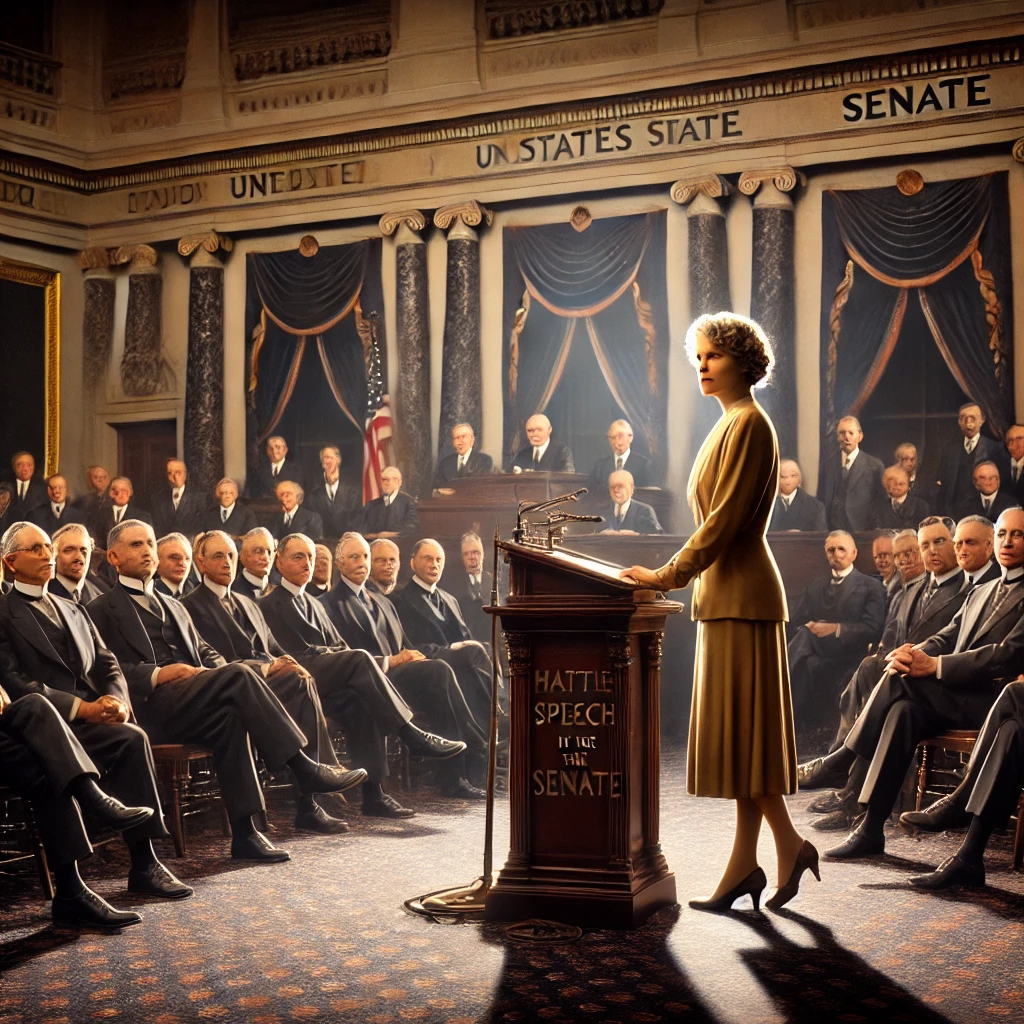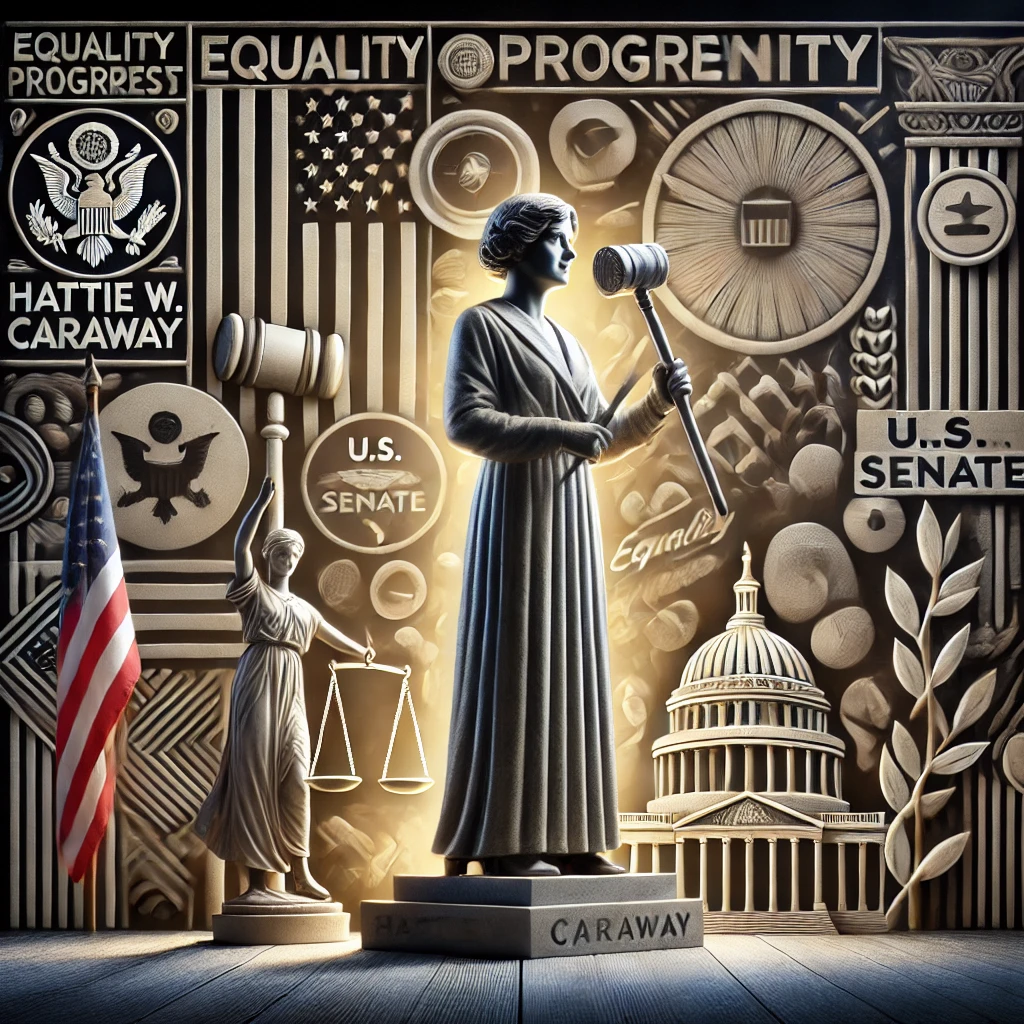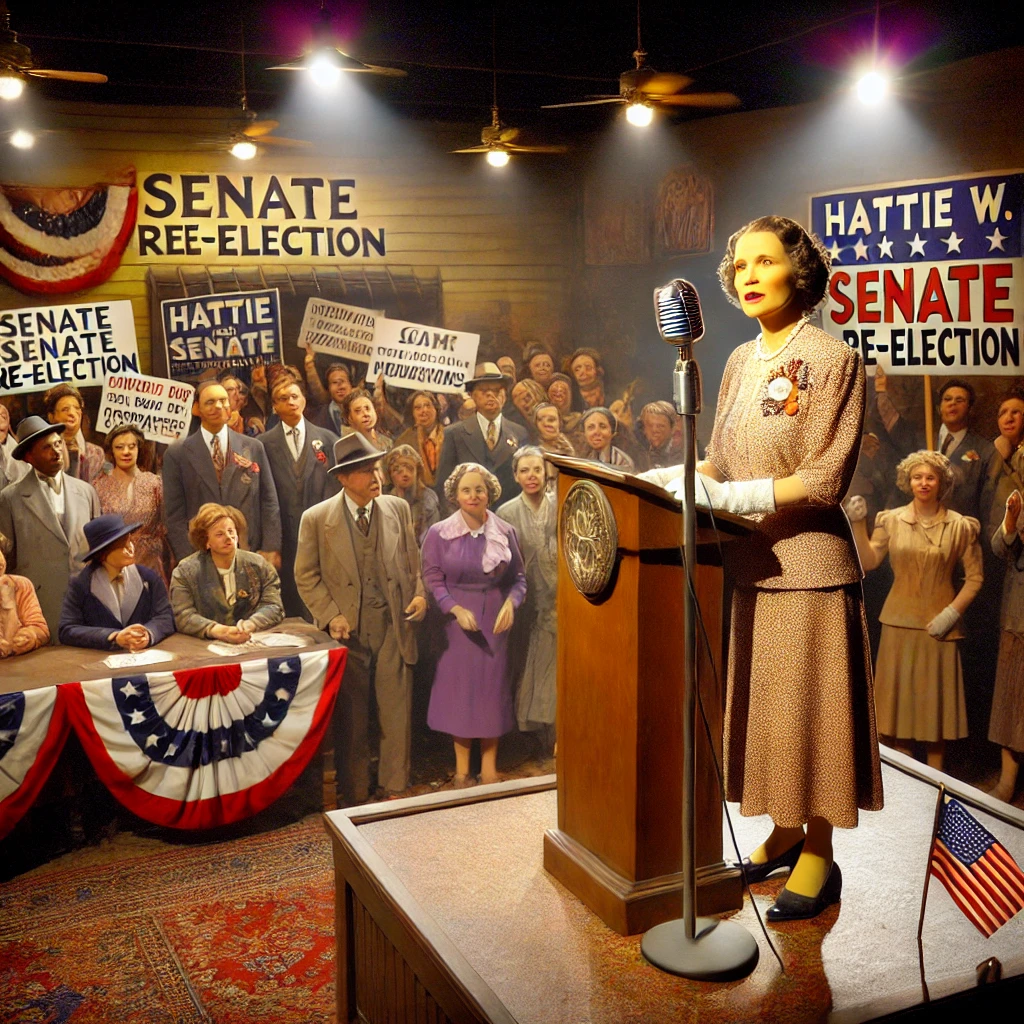On January 12th, 1932, Hattie W. Caraway made history by becoming the first woman elected to the United States Senate. A trailblazing moment in U.S. political history, her election marked a significant milestone in the ongoing fight for women’s rights and political representation. Caraway’s tenure in the Senate not only demonstrated the capability of women in positions of political power but also paved the way for future generations of women to break into political offices previously dominated by men.

The Path to the Senate
Hattie Caraway’s journey to the U.S. Senate began in an unexpected way. In 1931, after the sudden death of her husband, Thaddeus Caraway, who had served as a U.S. Senator from Arkansas, Hattie was appointed to fill his vacant seat. Her appointment was a temporary measure, but it quickly became clear that she was a capable and committed public servant. Hattie Caraway did not rest on her appointment; she actively engaged in legislative duties, gaining respect for her hard work and dedication.
In 1932, Caraway made history by winning a special election for the Senate seat, becoming the first woman to be elected to the U.S. Senate in her own right. She campaigned on a platform of stability, fiscal responsibility, and continued support for President Franklin D. Roosevelt’s New Deal policies, which were gaining momentum during the Great Depression. Caraway’s election not only broke gender barriers but also symbolized the increasing involvement of women in the political sphere during a time of social and economic upheaval.

Paving the Way for Women in Politics
Caraway’s victory was a groundbreaking achievement in the history of American politics. Her election demonstrated that women, who had gained the right to vote only a dozen years earlier, could hold powerful offices and influence national policy. During her time in the Senate, she advocated for measures to benefit farmers, veterans, and laborers, and was known for her support of New Deal programs. Though she did not hold a prominent public profile, Caraway’s steady work behind the scenes made a significant impact on legislation.
Her success opened doors for other women in politics, inspiring future generations to pursue careers in public service. While it would take decades for women to be equally represented in U.S. politics, Caraway’s election marked an essential moment of progress in the gender equality movement. She showed that women were capable of playing a vital role in shaping the nation’s policies and legislation.

Lasting Impact on U.S. Politics
Caraway’s legacy extends beyond her time in office. As the first woman elected to the U.S. Senate, her election helped to normalize the presence of women in high-level politics. Over time, more women would be elected to the Senate, and women would take on more prominent roles in U.S. government at all levels. Caraway’s election also symbolized a shift in American political culture, where women were no longer viewed solely as political supporters but as leaders capable of holding office.
Although Caraway was not re-elected after her term in 1945, her contribution to American politics cannot be overstated. Her success inspired countless women to follow in her footsteps, leading to significant increases in women’s political participation in the years to come. Today, the number of women serving in Congress continues to grow, and Hattie Caraway’s election remains a touchstone in the history of women’s political empowerment in the United States.
Hattie W. Caraway’s election to the United States Senate on January 12th, 1932, marked a pivotal moment in U.S. political history. As the first woman elected to the Senate, Caraway broke significant gender barriers and paved the way for future female politicians. Her legacy continues to inspire women in politics and serves as a reminder of the importance of representation, perseverance, and the power of breaking through societal limitations.
